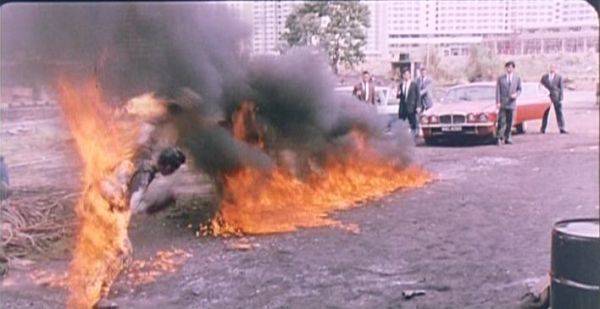| Gordon Chan: Basically writing. I wrote for a couple of films, but not much. For David Chiang’s films. There was a comedy about a death, I think it was about a fat woman who dies and comes back. And she reincarnates into a beautiful woman’s body and finds that there is a look-alike fat woman. It was a ghost story. I forgot the English title [Double Fattiness, 1988]. And Maggie Cheung actually starred as the ghost who came back. But Maggie Cheung failed.

So that was one of the scripts I wrote and then, another one for Johnnie To. One of the first Johnnie To’s films --The Big Heat (1988). That movie was considered to be a disaster. Of course, it took almost two years to finish, which was pretty rare in HK. And it wasn’t a big budget movie.
It was supposed to be a first small-budget experimental genre film and it ended up taking two years and several directors to finish it, including Johnnie To, Andrew Kam Yeung Wah, Jimmy Leung Chi Ming and Ching Siu-tung. Including Tsui Hark himself. Almost everybody was shooting then.

I was only writer on that film and I went through the whole process in two years. I had fifteen drafts on that one. I thought it was enough. The story was still changing in the dubbing room. I still remember Tsui Hark asking me what the film was about and I said: “Which version?”
So I thought I worked enough in the Film Workshop. Tsui Hark had taught me a lot. In fact, I worked on all the Film Workshop films, in the creative department with
Yuen Kai Chi.
Basically how it worked is that Tsui Hark would go into different creative meetings and we will join him in every of those meetings. That means we were taking part in every films, including A Better Tomorrow and A Chinese Ghost Story. I wrote the first script for A Chinese Ghost Story. But we never got any credit. I don’t think we should because everybody was involved.
|
